SESSION I: Cultivating the membership base in the private sector
APS Interactions: Spanning a Career from Academia to Industry
Bob Doering, Texas Instruments
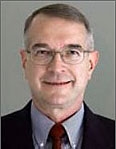
Brief Biography
Bob Doering is a Senior Fellow and Research Manager at Texas Instruments. He is also a member of TI’s Technical Advisory Board, Kilby Labs Review Board, External Development and Manufacturing Leadership Team, and Executive University Research Steering Team. He received a B.S. degree in physics from the Massachusetts Institute of Technology in 1968 and a Ph.D. in physics from Michigan State University in 1974. He joined TI in 1980, after several years on the faculty of the Physics Department at the University of Virginia.
AVS Programs for Industrial Outreach
Bridget Rogers, American Vacuum Society, Chair of the Manufacturing Science and Technology Group; Associate Professor Vanderbilt University
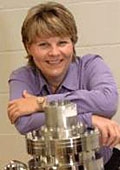
Brief Biography
Bridget Rogers is an Associate Professor in the Chemical Engineering Department at Vanderbilt University. She is teaching and performing research in the areas of thin film processing, focusing on the nucleation of CVD thin films. Prior to joining the Vanderbilt faculty she was employed in Motorola’s Semiconductor Products Sector for 14 years. Over the years she held positions in the areas of process engineering, process development, device engineering, and materials characterization. She received her Ph.D. and M.S. degrees in chemical engineering from Arizona State University and her B.S. degree, also in chemical engineering, from the University of Colorado, Boulder.
Recent OSA Initiatives to Engage the Industrial Sector
Melissa Russell, Optical Society of American, Chief Industry Relations Officer
Brief Biography
Melissa Russell has been with OSA for 13 years working in various roles growing support for the organization within the corporate and industrial segments of the optics and photonics community. In her current position, Melissa oversees programs and Initiatives for industry, including OSA Exhibitions, Corporate Membership, OIDA, and OSA’s new Industry Council, She and her team also manage the growing portfolio of other corporate-focused OSA and OIDA programs and products.
With 20 years of experience in the Association and non-profit sector, Melissa, before coming to OSA, worked for The National School Boards Association, The Document Management Industries Association, and several online advertising companies that supported government, consumer and association e-marketing.
Melissa holds a B.A in Journalism from The Ohio State University.
Status and Plans for ACS Interactions with Industry
David Harwell, American Chemical Society, Assistant Director, Industry Member Programs
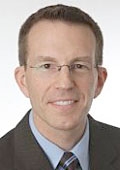
Brief Biography
David Harwell was recently named the Assistant Director for Industry Member Programs. Prior to that he was the Assistant Director of ACS Careers at the American Chemical Society. He has served in a variety of roles during 13 years with the ACS. David received his B.S. and Ph.D. degrees in chemistry from Texas Tech University, and has been a member of ACS for more than 20 years.
Engagement with Early Career Physicists
Crystal Bailey, American Physical Society, Education and Careers Program Manager
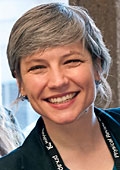
Brief Biography
Crystal Bailey is the Careers Program Manager at the American Physical Society (APS) in College Park, MD. Crystal works on several projects which are geared towards marketing physics and physics career information to high school students, undergraduates, graduate students and physics professionals. Some of her principle projects include the physics InSight slideshow, APS Career Fairs and job boards as well as providing staff support to the APS Committee on Careers and Professional Development. Before coming to the APS, Dr. Bailey earned her Ph.D. in nuclear physics at Indiana University, Bloomington in the area of few-body systems.
SESSION II: Programs for retaining middle school students’ interest in science
Getting involved in K-12 outreach and informal science education
Larry Bell
Abstract
There are many benefits that result from collaborations between scientists and informal educators. Recognizing that scientists have knowledge of current research areas and informal educators have knowledge about engaging the public, the National Science Foundation created the Nanoscale Informal Science Education Network (NISE Net) in 2005. Now in its ninth year, the NISE Net has created a wide range of educational materials, professional development for educators and scientists, and a network of about 500 organizations. Annual NanoDays events bring scientists and educators together to engage the public in learning about nanotechnology, but more than that, the NanoDays kits and other educational materials are used by network members for summer camps, science clubs, teacher professional development, K-12 classroom and after-school programs, and even in college courses. University scientists working with the kits say that the materials motivate them, give them new insights and capabilities to engage kids in inquiry learning, and even help them broaden their own knowledge of scientific fields beyond their own. Scientific societies are well positioned to reach the community with informal science education, and help students of all agesmaintain an interest in science. This talk will address the benefits and impacts of informal science education and provide examples of successful collaborations. Subsequent panelists will focus on activities and techniques specifically designed to foster interest in science among middle school students.
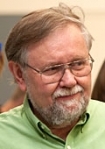
Brief biography
Larry Bell is Senior Vice President for Strategic Initiatives at the Museum of Science in Boston and the Director of the Nanoscale Informal Science Education Network, a major NSF-funded initiative to raise public awareness, understanding, and engagement with nanoscale science, engineering, and technology. He has worked at the Museum in various educational and administrative roles since 1971, where he led the Museum in implementing a long-range plan for science center exhibits employing contructivist learning experiences to provide visitors with practice in scientific thinking skills. Currently he is especially interested in public engagement with societal implications of science and technology and activities that engage the public in dialogue and deliberation around socio-scientific issues, and in how research in the science of science communication can inform informal science education practices. He currently is leading the launch of a community of practice on public engagement with science in the Association of Science-Technology Center community. He received a B.S. in Physics and an M.S. in Earth and Planetary Science from M.I.T. in 1971.
The Ocean 180 Video Challenge
Richard Tankersley
| Video (mp4)
Abstract
Scientists conduct exciting, ground-breaking research that addresses many of the world’s greatest challenges. Yet, far too often the importance, meaning, and implications of their discoveries are never shared with non-scientists. Recognizing the need for scientists to communicate more effectively with the general public, the Florida Center for Ocean Sciences Education Excellence (COSEE Florida) saw an opportunity to connect the two through video. In the fall 2013, COSEE Florida launched the Ocean 180 Video Challenge to tap into the competitive spirit of scientists and inspire them to share their discoveries with the public. Scientists were encouraged to submit 3-minute (180 second) videos summarizing the important findings of a recent peer-reviewed paper and highlighting the relevance of the research to persons outside their discipline. Videos were initially screened by science/communication experts, yet the winners were selected by middle school students from around the world. The presentation will review the outcomes and lessons learned from the competition and describe plans to utilize the videos for professional development, training, and classroom instruction.
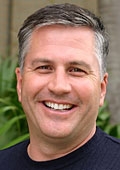
Brief Biography
Richard Tankersley is Professor of Biological Sciences at the Florida Institute of Technology in Melbourne, Florida.He is currently on assignment at the National Science Foundation as a Program Director in the Division of Graduate Education. At the NSF, he oversees and manages the Integrative Graduate Education and Research Traineeship (IGERT) Program and its successor, the NSF Research Traineeship Program. He also coordinates the Graduate Research Opportunities Worldwide (GROW) program that provides funding for NSF Graduate Research Fellows to engage in research collaborations with investigators in 22 partner countries. Professor Tankersley directs the professional development and training initiatives for Florida’s Center for Ocean Science Education Excellence (COSEE Florida) and is the lead trainer for the Center’s popular Presentation Boot Camp program. He is also the creator and director of the Ocean 180 Video Challenge, an international video abstract competition that encourages scientists to share their most exciting research discoveries with middle school students around the globe.
Physics Quest
Rebecca Thompson
Abstract
Middle school is a critical time in maintaining students prolonged interest in science. It is important to give students this age a positive experience with physics in the hopes of capturing their continued interest. APS reached this audience through the story-based, kit program; "PhysicsQuest." Consisting of a kit of fun materials, an activity manual and an overarching comic book story, kits are sent to over 13,500 middle school classrooms annually. The combination of art, story and physics is unique and reaches students on multiple levels. The extremely successful program is in its 9th year and is continually oversubscribed.
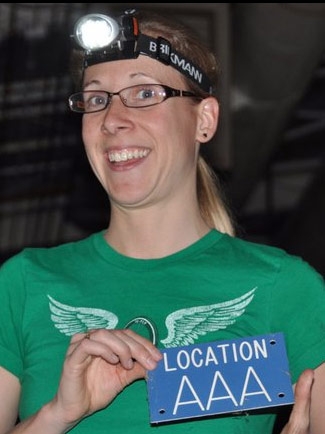
Brief Biography
Rebecca Thompson has been the Head of Public Outreach for the American Physical Society since 2008. At APS she oversees the wide variety of outreach activities including the Physics Central outreach website, the Science Off the Sphere video collaboration with NASA and APS participation in Six Flags Physics Day. She is the author of the popular "Spectra" educational comic book series for the tween audience. "Spectra" reaches nearly half a million people a year and has been asked to exhibit at the premier pop-culture convention, Comic-Con international. She received her undergrad degree from Bryn Mawr College and PhD from University of Texas at Austin studying buckling membranes.
Middle School Outreach from the Harvard Smithsonian Center for Astrophysics
Philip M. Sadler, Director, Science Education Department, Harvard Smithsonian Center for Astrophysics
Abstract
Many students have a deep interest in astronomy, but a limited opportunity to use telescopes to explore the heavens, especially those in urban areas. The MicroObservatory Network of five automated telescopes is designed to provide access to classroom teachers who wish their middle school students to conduct projects over the World Wide Web. Telescopes can be remotely pointed and focused: filters, field of view, and exposure times can be changed easily. Images are archived at the website, along with sample challenges and curriculum materials, all of which encourage collaboration among schools. More than 1,000,000 images have been taken and used for projects from constellation identification to measuring the sizes of exoplanets.
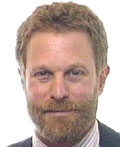
Brief Biography
Philip Sadler holds a B.S. in Physics from MIT and an Ed.D. from Harvard. He co-authored the first integrated computer and laboratory introductory calculus course in 1975. He has taught middle school math and science and both undergraduate science and graduate teaching courses at Harvard. His research interests include assessment of students' misconceptions and how they change with instruction, K-12 curriculum development, the STEM pipeline, the professional development of teachers, and the use of advanced technology to allow students to investigate nature. Dr. Sadler won the Journal of Research in Science Teaching Award, the AIP’s Computers in Physics Prize, the American Astronomical Society Education Prize, and the AAPT’s Millikan Medal. Materials and curricula developed by Dr. Sadler are used by an estimated fifteen million students every year.
SESSION III: Public Access Developments and Implications for Scholarly Publishing
The changing landscape of scholarly publishing due to the open access/public access pressures
David Crotty
Abstract
Open access is entering a new phase, transitioning from what was essentially an angry protest movement to a stage of active experimentation and development as it becomes a mainstream part of the scholarly communication landscape. Much of this progress has been driven by new funding agency policies requiring public access to research papers describing the results of funded research. In order to provide the services that the research community needs, we must be clear on the concepts of open access and the new rules that researchers are required to follow. This talk will present a quick overview of these basic concepts and the current state of major funding agency policies. Examples and strategies from the point of view of a not-for-profit university press working with society partners will be discussed.
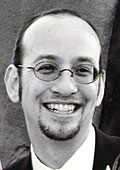
Brief biography
David Crotty is a Senior Editor with Oxford University Press' journal publishing program. He handles journals acquisitions, the creation of new journals, and currently oversees the daily management of a suite of research society-owned journals. David was previously an Executive Editor with Cold Spring Harbor Laboratory Press, creating, acquiring, and editing new science books, creating and running new journals (he served as the Editor in Chief for Cold Spring Harbor Protocols), and managing the Press’ online content. David received his PhD in Genetics from Columbia University and did developmental neuroscience research at Caltech before moving from the bench to a science publishing house. David serves on the interim Board of Directors for CHOR Inc., a not-for-profit public-private partnership to increase public access to peer-reviewed publications that report on federally funded research. As the Executive Editor of the Society for Scholarly Publishing's Scholarly Kitchen blog, David regularly writes about the intersection of technology and publishing.
CHORUS: A Solution for Public Access
Howard Ratner
Abstract
For too many years, the discussion about public access to articles reporting on federally funded research has been characterized by conflict. Last year, two events came together to provide an opportunity to replace conflict with cooperation. First, the FundRef project was launched. This collaboration between publishers and funders to help authors accurately report funding sources for their research demonstrated what is possible through collaborative approaches to address a common need. It also emphasized for funders and researchers the extensive information infrastructure that publishers have created to support scholarly communication. Second, the White House Office of Science and Technology Policy (OSTP) directed US funding agencies to develop plans to provide public access to articles reporting on the results of research they have supported. This created an opportunity to further collaborate.
The Clearinghouse for the Open Research of the United States (CHORUS) was born from this opportunity. CHORUS is a not-for-profit, public-private partnership to provide public access to the peer-reviewed publications that report on federally funded research. Conceived by publishers as a solution for agencies and the research community they support, and to meet the needs of libraries and the general public for increased access, CHORUS builds on publisher investments in discovery, access, and interoperability. With the support of more than 100 publishers and partners, a pilot is underway that is showing how, working together, agencies and publishers can achieve access goals in an efficient, cost-effective, and reliable manner.
This talk will provide an update on the CHORUS project and explain why it makes good business sense for publishers to participate. I will also address lessons learned from the pilot, and give a demonstration of the services CHORUS provides.
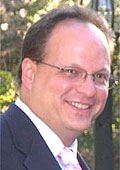
Brief Biography
Howard Ratner is Executive Director of CHOR Inc. and leads its first service – CHORUS -- Clearinghouse for the Open Research of the United States -- a not-for-profit public-private partnership to increase public access to peer-reviewed publications that report on federally funded research. Howard was most recently Chief Technology Officer, Executive Vice-President, for Nature Publishing Group where he was in charge of global web and mobile development and operations, content management, production and manufacturing, and information technology across all NPG products. Howard's earlier positions included Director, Electronic Publishing & Production for Springer and a member of the production staff at John Wiley & Sons.
Howard founded and led many of the major cross-community efforts in scholarly communications. He co-founded and chaired the not-for-profit ORCID –Open Researcher and Contributor ID system–and continues to serve on its board of directors. He was active in the establishment of the Digital Object Identifier (DOI) and the founding and technical development of CrossRef and CLOCKSS. He currently serves as the President-Elect for the Society for Scholarly Publishing and is an active member of the STM Future Labs. Howard received the NFAIS Miles Conrad Memorial Lecture Award in 2012. He is a frequent speaker on a variety of production and new technology themes.
Data management issues and how societies can contribute
David P. Martinsen
Abstract
While most of the attention related to the OSTP memo of February 22, 2013 has focused on journal articles, research data was also mentioned as a research output that should be archived and made accessible. In many ways, research data presents a much more difficult problem. The publication of articles has a well-established workflow, even in the digital world. Research data, except for the supplemental materials published with an article, have generally remained in the laboratories of the researchers. Publishing data therefore requires a cultural shift at the very minimum. But beyond that, the diversity of data, the need for standard formats for long term usability, and the amount of storage required all provide additional challenges. There are a number of organizations who are trying to address these challenges, and scholarly societies can play a significant role.
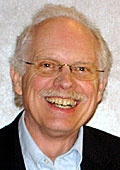
Brief biography
David Martinsen has been at the American Chemical Society (ACS) for over 25 years, working in various capacities in the Publications Division and in IT. In his current role, he is responsible for tracking new technologies and planning for their incorporation into the scholarly publishing environment. Prior to joining ACS, he worked for a chemical software/database company, with responsibilities in database curation and in the development and maintenance of online search/retrieval systems for chemical data. He received a PhD degree in physical chemistry from the University of Minnesota. He is currently Chair of the Committee for Printed on Electronic Publications of the International Union of Pure and Applied Chemistry (IUPAC), was co-Chair of the NISO/NFAIS Supplementary Journal Article Technical Working Group, and serves on the CHORUS Technical Working Group and the STM Future Lab Committee and Research Data Group.
